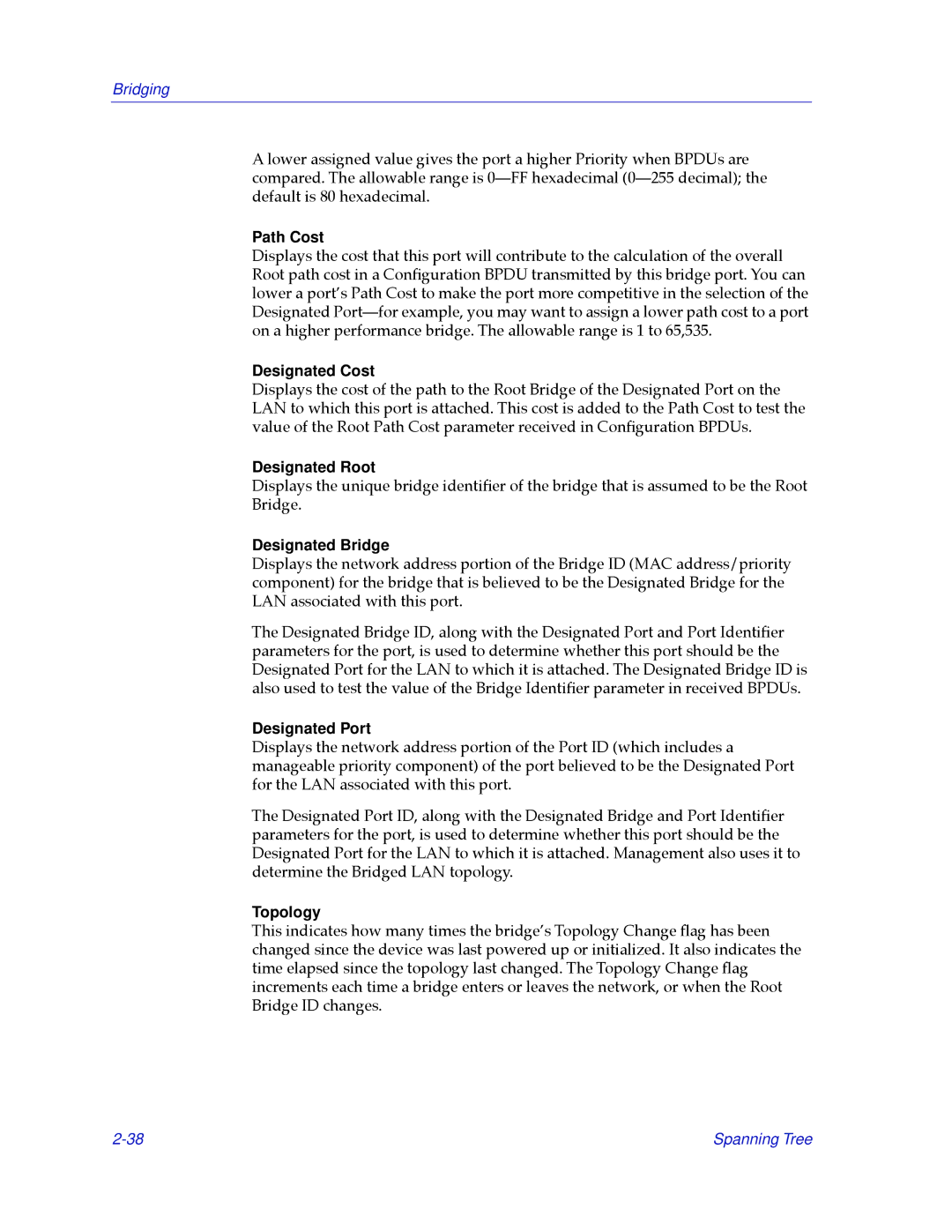Bridging
A lower assigned value gives the port a higher Priority when BPDUs are compared. The allowable range is 0ÑFF hexadecimal (0Ñ255 decimal); the default is 80 hexadecimal.
Path Cost
Displays the cost that this port will contribute to the calculation of the overall Root path cost in a ConÞguration BPDU transmitted by this bridge port. You can lower a portÕs Path Cost to make the port more competitive in the selection of the Designated PortÑfor example, you may want to assign a lower path cost to a port on a higher performance bridge. The allowable range is 1 to 65,535.
Designated Cost
Displays the cost of the path to the Root Bridge of the Designated Port on the LAN to which this port is attached. This cost is added to the Path Cost to test the value of the Root Path Cost parameter received in ConÞguration BPDUs.
Designated Root
Displays the unique bridge identiÞer of the bridge that is assumed to be the Root Bridge.
Designated Bridge
Displays the network address portion of the Bridge ID (MAC address/priority component) for the bridge that is believed to be the Designated Bridge for the LAN associated with this port.
The Designated Bridge ID, along with the Designated Port and Port IdentiÞer parameters for the port, is used to determine whether this port should be the Designated Port for the LAN to which it is attached. The Designated Bridge ID is also used to test the value of the Bridge IdentiÞer parameter in received BPDUs.
Designated Port
Displays the network address portion of the Port ID (which includes a manageable priority component) of the port believed to be the Designated Port for the LAN associated with this port.
The Designated Port ID, along with the Designated Bridge and Port IdentiÞer parameters for the port, is used to determine whether this port should be the Designated Port for the LAN to which it is attached. Management also uses it to determine the Bridged LAN topology.
Topology
This indicates how many times the bridgeÕs Topology Change ßag has been changed since the device was last powered up or initialized. It also indicates the time elapsed since the topology last changed. The Topology Change ßag increments each time a bridge enters or leaves the network, or when the Root Bridge ID changes.
Spanning Tree |
